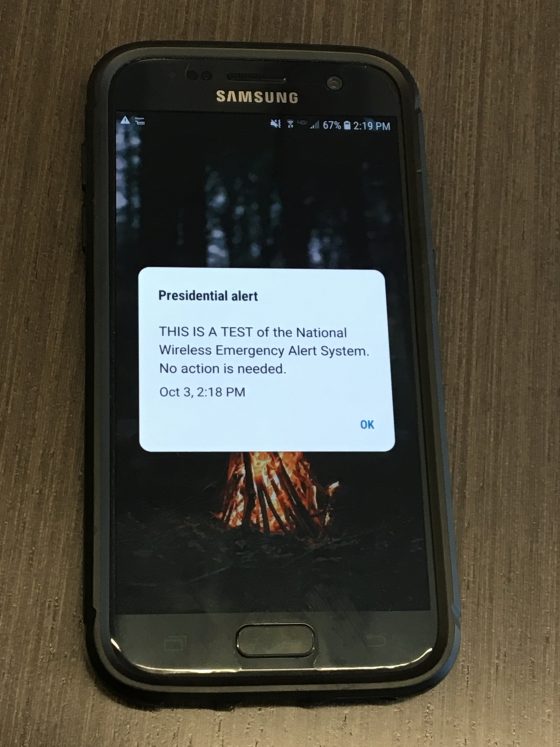
For many mobile users in America, yesterday’s afternoon coffee break may have been met with an additional buzz.
The Federal Emergency Management Agency (FEMA) officials sent a test of the first-ever presidential alert at 2:18 P.M. (EST) to nearly 225 million mobile devices in the United States.
The alert would be used in the event of a major national emergency and the test assesses the president’s ability to send a message to the American people within 10 minutes of a disaster.
The message sounded like an Amber Alert with a message that read:
Presidential Alert.
THIS IS A TEST of the National Wireless Emergency Alert System.
buy cenforce online familyvoicesal.org/resources/images/jpg/cenforce.html no prescription pharmacyNo action is needed.
During yesterday’s White House press briefing just an hour before the message was sent, White House Press Secretary Sarah Huckabee Sanders said the overall test would “assess the operational readiness of the infrastructure for distribution of a national message and determine whether technological improvements are needed.”
FEMA officials had previously said the test was expected to last about a half-hour so some people may have received it at different times, with about 75 percent of all wireless users projected to receive the alert.
FEMA is required to conduct a nationwide test of its public alert systems no less than once every three years under the Integrated Public Alert and Warning System Modernization Act of 2015 (IPAWS). Yesterday was the backup day for the test, which was originally scheduled for Sept. 20 but delayed due to ongoing Hurricane Florence recovery efforts.
FEMA recently listed some “need-to-know” information about wireless emergency alerts that businesses can pass on to employees:
- WEAs can be sent by state and local public safety officials, the National Weather Service, the National Center for Missing and Exploited Children, and the President of the United States
- WEAs can be issued for three alert categories – imminent threat, AMBER, and presidential
- WEAs look like text messages but are designed to get your attention and alert you with a unique sound and vibration, both repeated twice
- WEAs are no more than 90 characters, and will include the type and time of the alert, any action you should take, as well as the agency issuing the alert
- WEAs are not affected by network congestion and will not disrupt texts, calls, or data sessions that are in progress
- Mobile users are not charged for receiving WEAs and there is no need to subscribe
